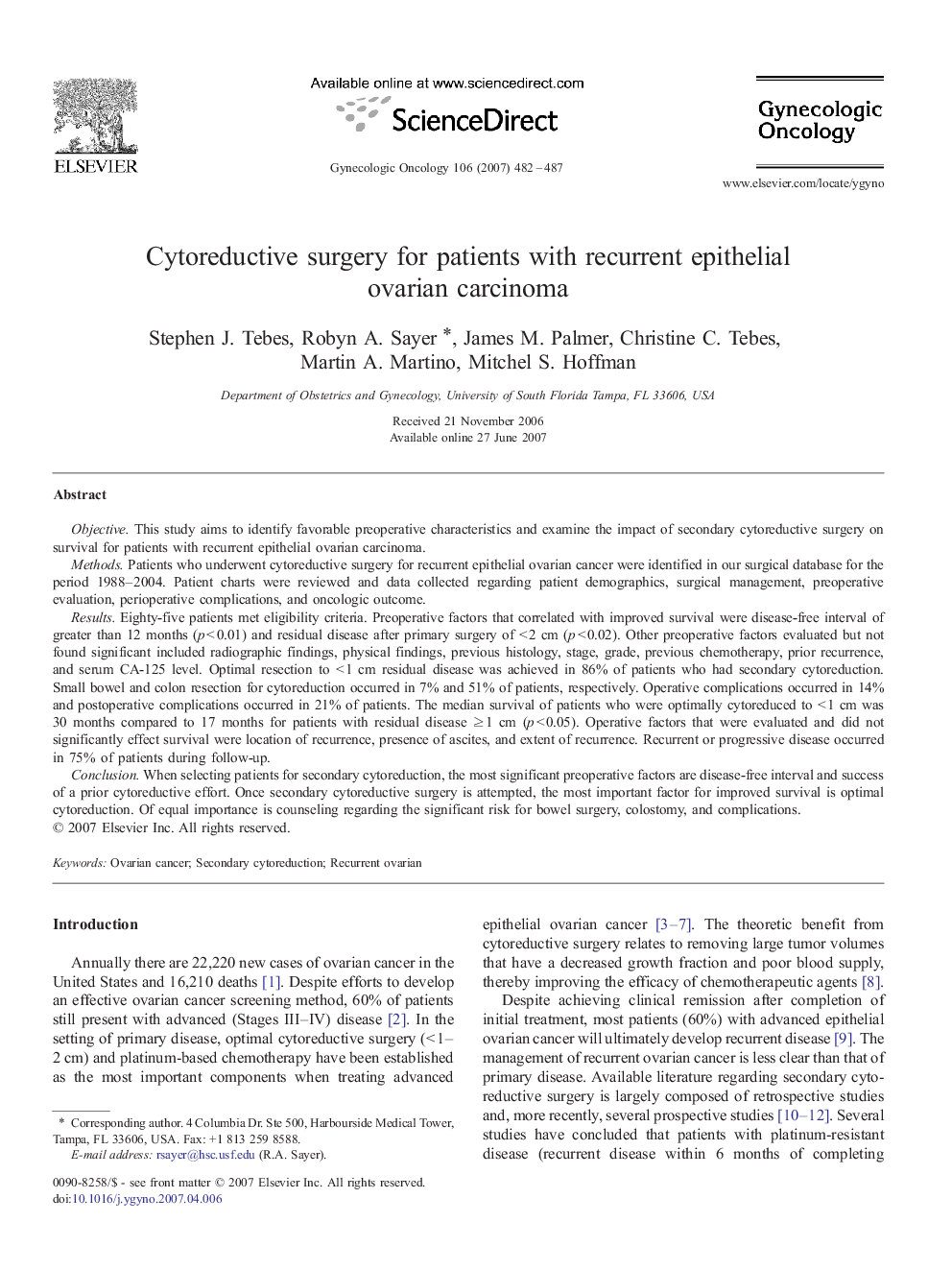| Article ID | Journal | Published Year | Pages | File Type |
|---|---|---|---|---|
| 3946382 | Gynecologic Oncology | 2007 | 6 Pages |
Objective.This study aims to identify favorable preoperative characteristics and examine the impact of secondary cytoreductive surgery on survival for patients with recurrent epithelial ovarian carcinoma.Methods.Patients who underwent cytoreductive surgery for recurrent epithelial ovarian cancer were identified in our surgical database for the period 1988–2004. Patient charts were reviewed and data collected regarding patient demographics, surgical management, preoperative evaluation, perioperative complications, and oncologic outcome.Results.Eighty-five patients met eligibility criteria. Preoperative factors that correlated with improved survival were disease-free interval of greater than 12 months (p < 0.01) and residual disease after primary surgery of < 2 cm (p < 0.02). Other preoperative factors evaluated but not found significant included radiographic findings, physical findings, previous histology, stage, grade, previous chemotherapy, prior recurrence, and serum CA-125 level. Optimal resection to < 1 cm residual disease was achieved in 86% of patients who had secondary cytoreduction. Small bowel and colon resection for cytoreduction occurred in 7% and 51% of patients, respectively. Operative complications occurred in 14% and postoperative complications occurred in 21% of patients. The median survival of patients who were optimally cytoreduced to < 1 cm was 30 months compared to 17 months for patients with residual disease ≥ 1 cm (p < 0.05). Operative factors that were evaluated and did not significantly effect survival were location of recurrence, presence of ascites, and extent of recurrence. Recurrent or progressive disease occurred in 75% of patients during follow-up.Conclusion.When selecting patients for secondary cytoreduction, the most significant preoperative factors are disease-free interval and success of a prior cytoreductive effort. Once secondary cytoreductive surgery is attempted, the most important factor for improved survival is optimal cytoreduction. Of equal importance is counseling regarding the significant risk for bowel surgery, colostomy, and complications.
